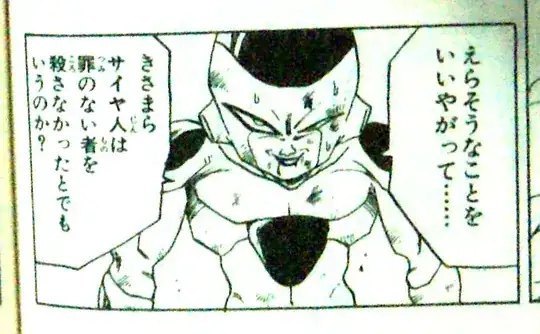I can not understand very well this "~とでもいうのか" found in Dragon Ball.
The context in this: Goku and Frieza begin to fight, and Goku say:
"いいかげんにしろ。。。このクズやろう。。。罪もない者をつぎからつぎへと殺しやがって。。。クリリンまで。。。"
Frieza reply:
"えらそうなことをいいやがって。。。きさまらサイヤ人は罪のないものを殺さなかったとでもいうのか?"
I found here on japanesestackexchange some topics in which has been discussed about this "~とでもいうのか". Here is stated that is a expression for add emphasis. Here and here it is says that "~とでもいうのか" stands for "or something".
So, which is the correct answer? And, is this translation correct?
"You wouldn't be saying that you saiyan never killed innocent people?"
